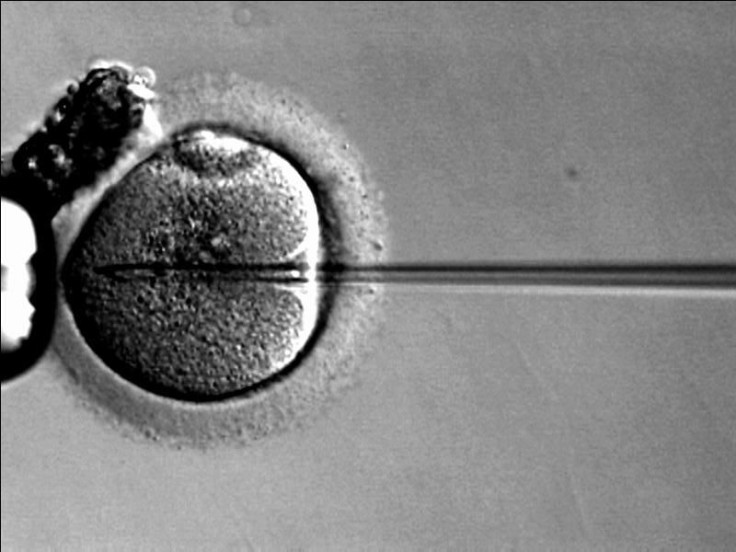Sperm Retrieval After Death: What Are The Ethical Concerns?

It's formally called postmortem sperm retrieval (PMSR), but despite the distinguished title, the act of extracting a man's sperm from him after he has died poses a great ethical question, one that scientists have yet to answer unanimously. Just because a man can make babies after death, does that entitle his family to create his child without him?
The process of obtaining a man's sperm after death has been around for decades — beginning with the development of artificial insemination after the donor has died — but today, as the practice proliferates, the discussion centers around the ethics of such an act.
In the absence of government regulation regarding controversial procedures, PMSR being one of those cases, Dr. Larry Lipschultz, a professor of urology at Baylor College of Medicine in Texas, says medical institutions should devise a comprehensive network of ethics policies. The procedure's short timeline doesn't allow for bureaucracies to drag their feet in the mud.
Experts say PMSR should take place no later than 24 hours after death, although motile sperm has been obtained as late as 36 hours afterwards. If the sperm is viable, fertilization takes place through a form of in vitro fertilization, the success rate of which remains unchanged regardless of whether or not the sperm donor was living or dead.
Without set regulations, the decision's required immediacy can make for tricky dilemmas.
One such case, published by Professor Carson Strong of the University of Memphis, involved a 31-year-old man who fell into a coma after suffering cardiac arrest and falling unconscious. When it became overwhelmingly likely he would not recover from the injury, doctors and family agreed the man would be extubated and let free to die if his brain stem could not maintain respiration.
"The patient and his wife had been married for two months," Professor Strong wrote in the study. "Prior to proceeding with extubation, the wife inquired about the possibility of sperm extraction for insemination at a later date. All the family members agreed that the patient would have intended to have children in the course of the marriage, but there was no indication as to how many, when, or under what circumstances."
Members of the hospital's ethics board convened to discuss the moral and legal aspects of the wife's decision. Strong noted that the committee rarely discussed ethical concerns during this meeting, focusing instead on the legal liabilities of the act. Eventually, the committee concluded they had no legal reason to prohibit the extraction from taking place — as the family had demonstrated sufficient implied consent on behalf of the patient — but made no mention as to the ethics of it.
"The apparent inability of the ethics committee to give advice concerning the ethical issues probably reflects, in part, the complexity and novelty of the case and the difficulty of the issues it raises," Strong concluded. "This underscores the need for discussion and debate of these issues."
Thirteen years later and the discussion persists. Lipschultz said cases of implied consent occur more frequently because the victim rarely anticipates death, leaving his family's collective permission to seal the sperm's fate.
But permission can be an untrustworthy barometer of morality. Following the man's death, the grieving family probably isn't a rational frame of mind. Because of this, Lipschultz advises families to wait several months to a year before considering using the man's sperm for conception. Still, the ethical tennis match ensues as Arthur Caplan, head of the division of medical ethics at NYU Langone Medical Center in New York, notes that denying a family's wishes to continue its lineage is also unethical.
Given this unfortunate catch-22, Caplan says the upshot in of all this is that "the core principle is not to reproduce anyone without their permission."
Currently, PMSR is fully illegal in France, Germany, Sweden, Canada, and the Australian states of Victoria and Western Australia. Written consent is required in the United Kingdom, implied consent suffices in Israel, and no legislation currently exists in Belgium, the United States, and many other countries around the world.
"Researchers say that regardless of the details of any protocol," writes LiveScience, "the ultimate goal is to establish policies that respect the wishes of the deceased and that are in the best interest of the family and the future child."
Source: Strong C, Gingrich J, Kutteh W. Ethics Of Postmortem Sperm Retrieval. Human Reproduction. 2000.



























